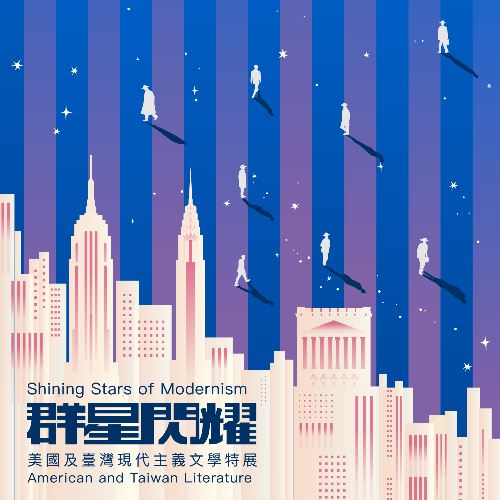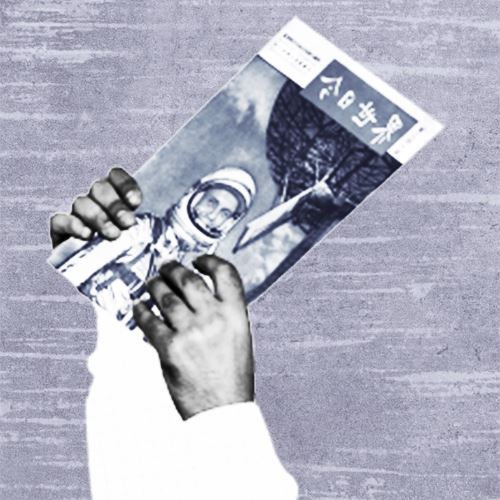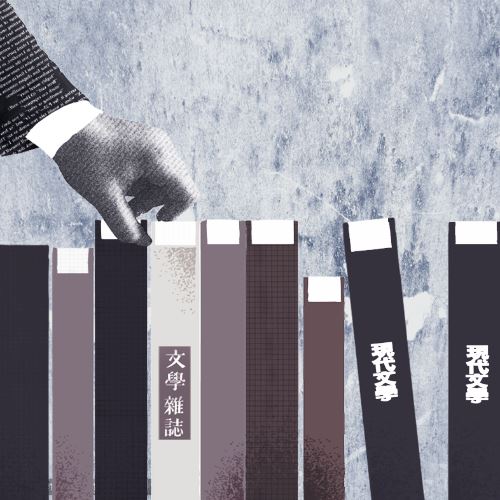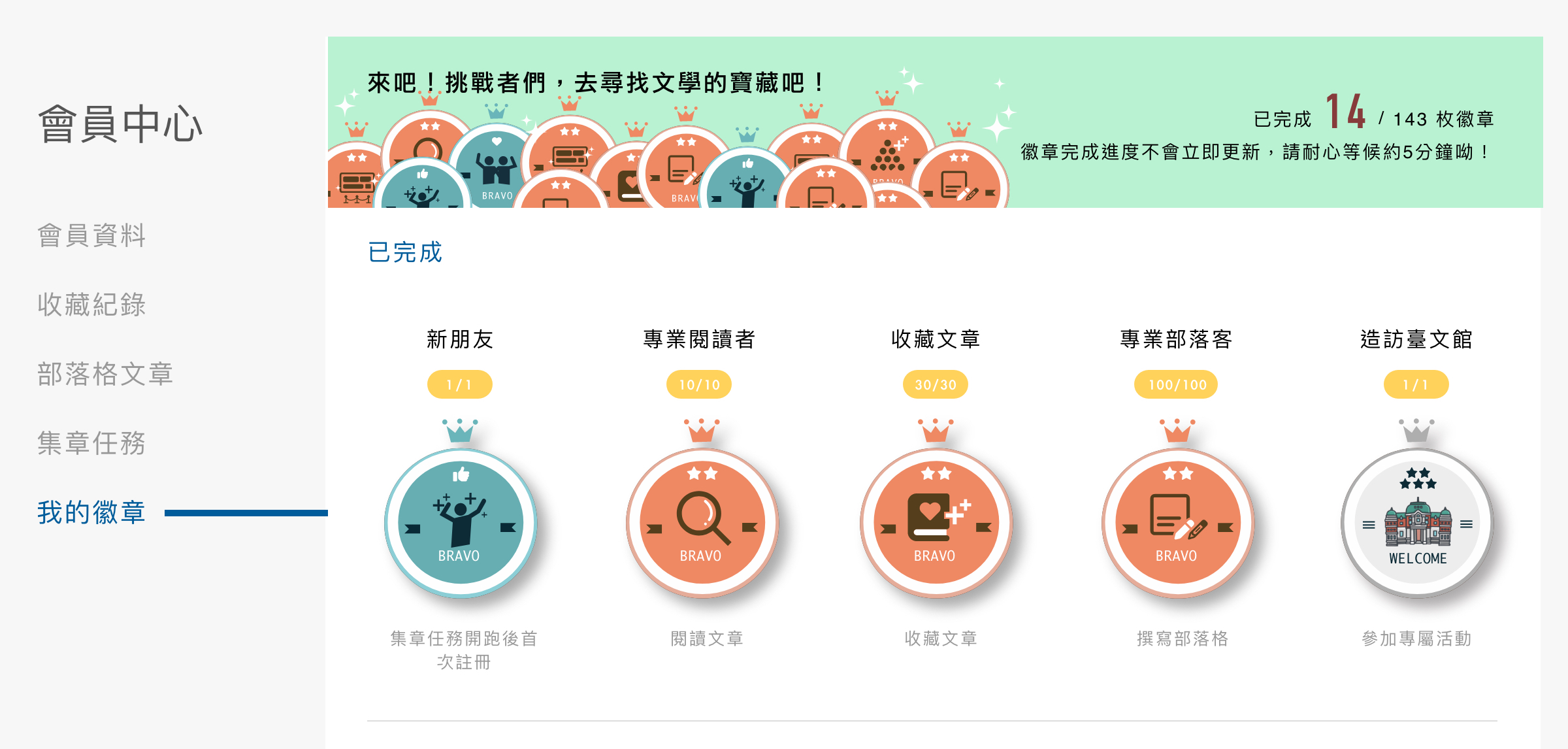✧ Writers' Workshop and International Writing Program ✧ New Criticism ✧ Taiwanese Writers Who Attended the Iowa Writers' Workshop ✧
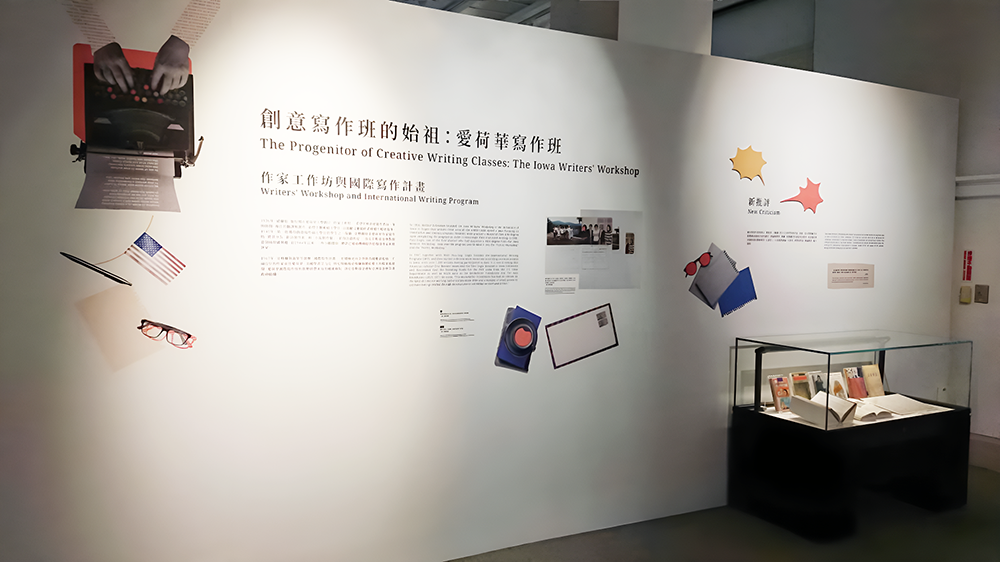
Writers' Workshop and International Writing Program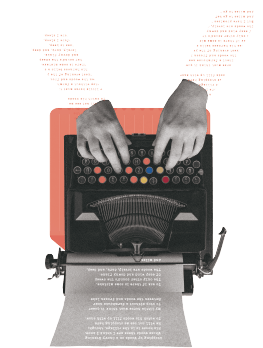
In 1936, Wilbur Schramm founded the Iowa Writers' Workshop at the University of Iowa in hopes that writers from around the world could spend a year focusing on translation and literary creation. Students were granted a Master of Fine Arts degree upon completing the program in order to encourage their continued writing. In 1941, Paul Engle, one of the first alumni who had acquired a MFA degree from the Iowa Writers’ Workshop, took over the program and divided it into the "Fiction Workshop" and the "Poetry Workshop."
In 1967, together with Nieh Hua-ling, Engle founded the International Writing Program (IWP), and they started to devote more resources to inviting overseas writers to Iowa, with over 1,200 writers having participated to date. It is worth noting that American scholar Eric Bennett examined the files Engle donated to Iowa University and discovered that the founding funds for the IWP came from the U.S. State Department as well as NGOs such as the Rockefeller Foundation and The Asia Foundation (2015: 107). He notes, “The Rockefeller Foundation has had an interest in the field of creative writing and criticism since 1944 and a number of small grants in aid have been provided through institutions to individual writers and critics.”
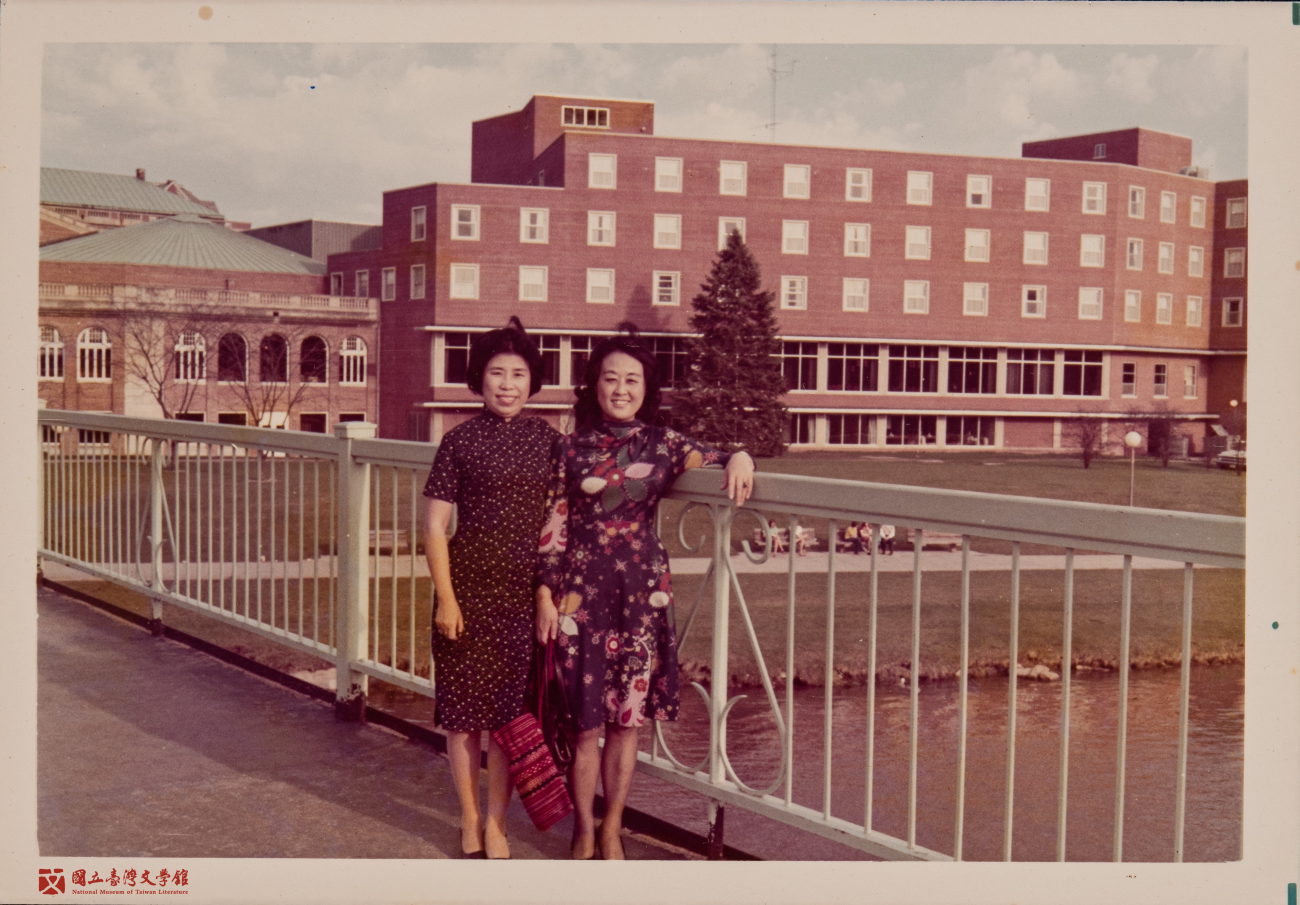
◪ Nieh Hua-ling and Chi Chun at the University of Iowa, USA.
Courtesy of the National Museum of Taiwan Literature Collections.
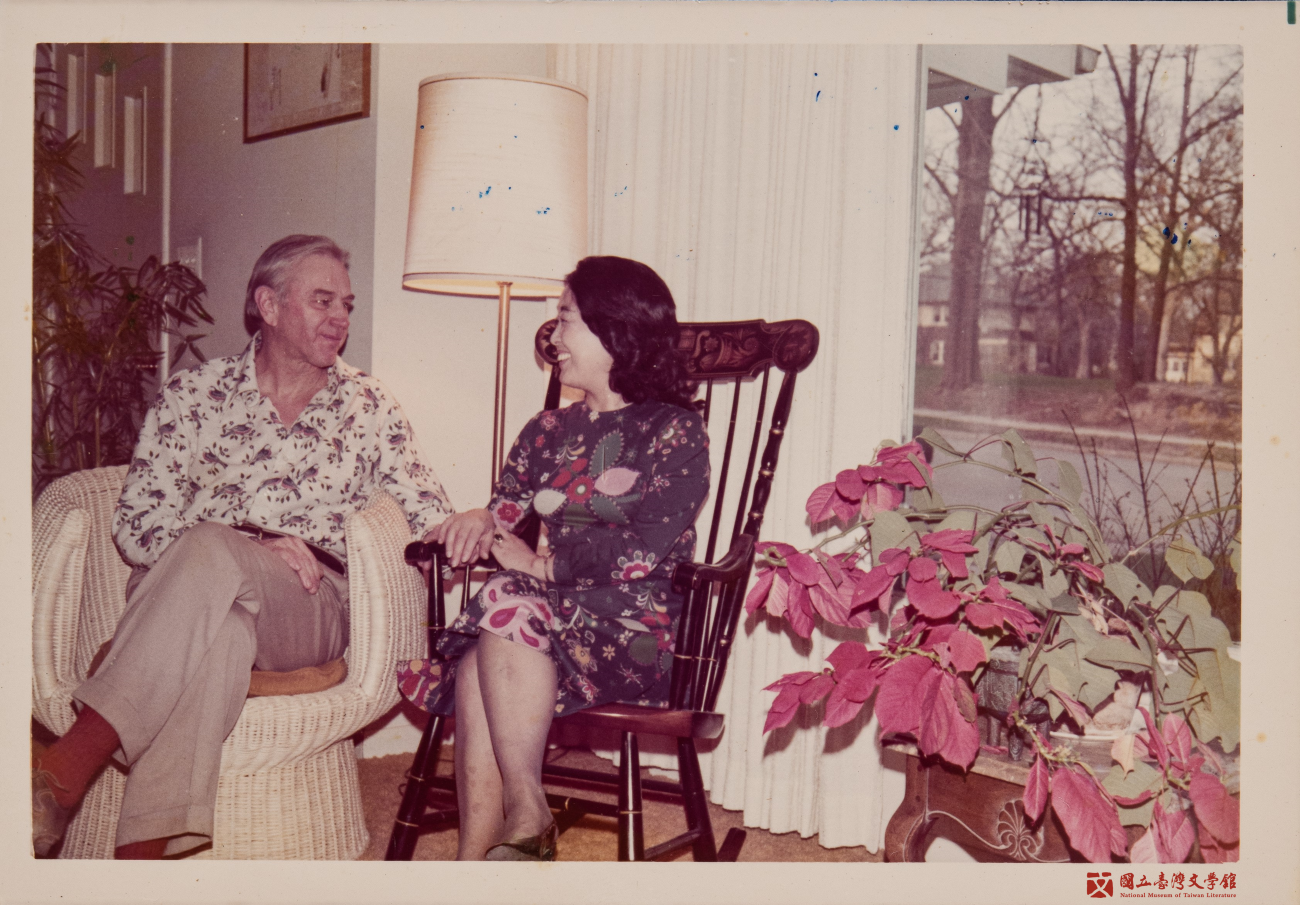
◪ Nieh Hua-ling and her husband Paul Engle at home
Courtesy of the National Museum of Taiwan Literature Collections.
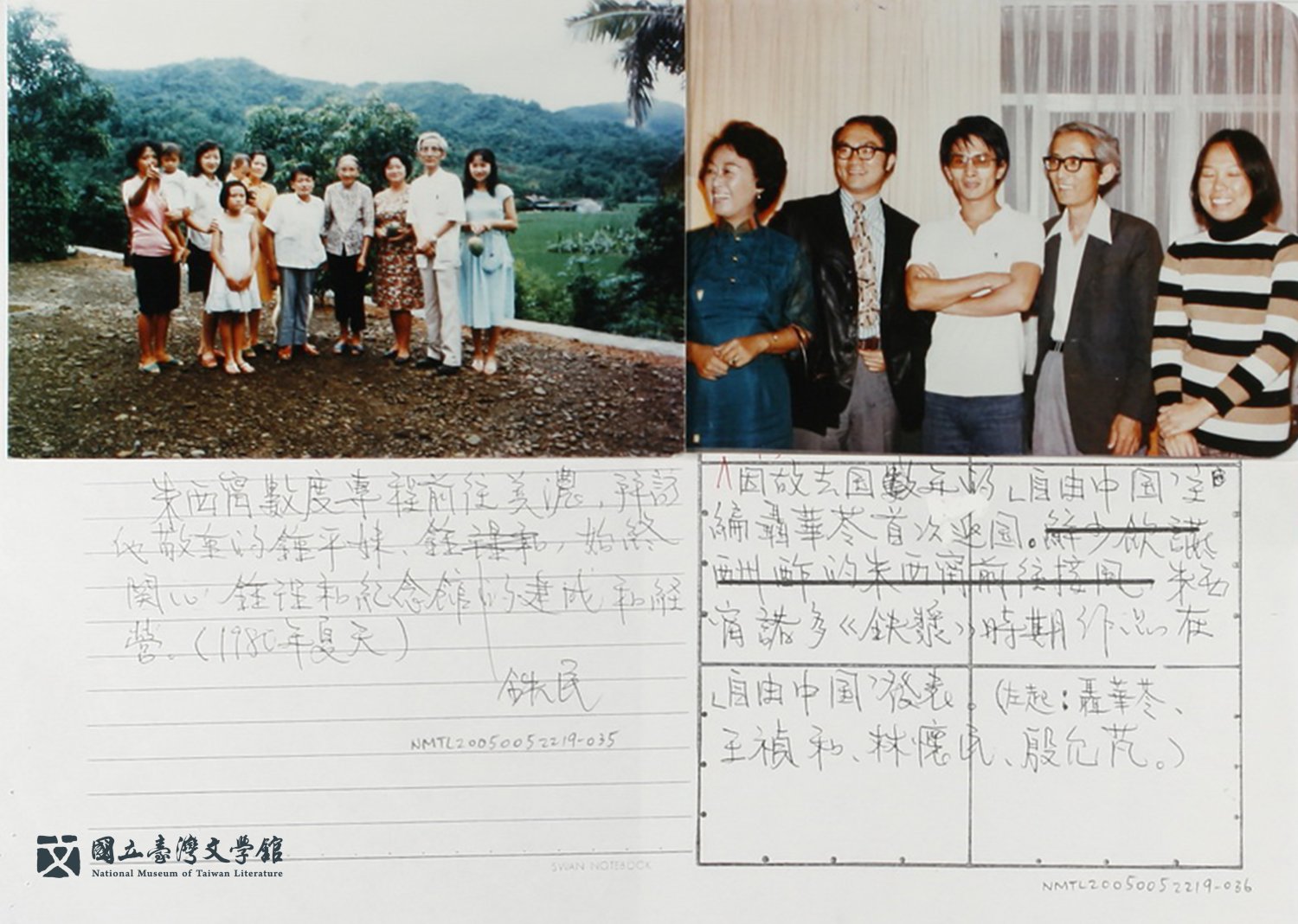
◪ 1974: From left: Nieh Hua-ling, Wang Chen-ho, Lin Hwai-min, Chu Hsi-ning, and Yin Yun-peng.
Nieh Hua-ling returns to Taiwan for the first time after many years since Free China ceased publication in 1960 and she moved to live in the U.S. (Courtesy of the National Museum of Taiwan Literature Collections)
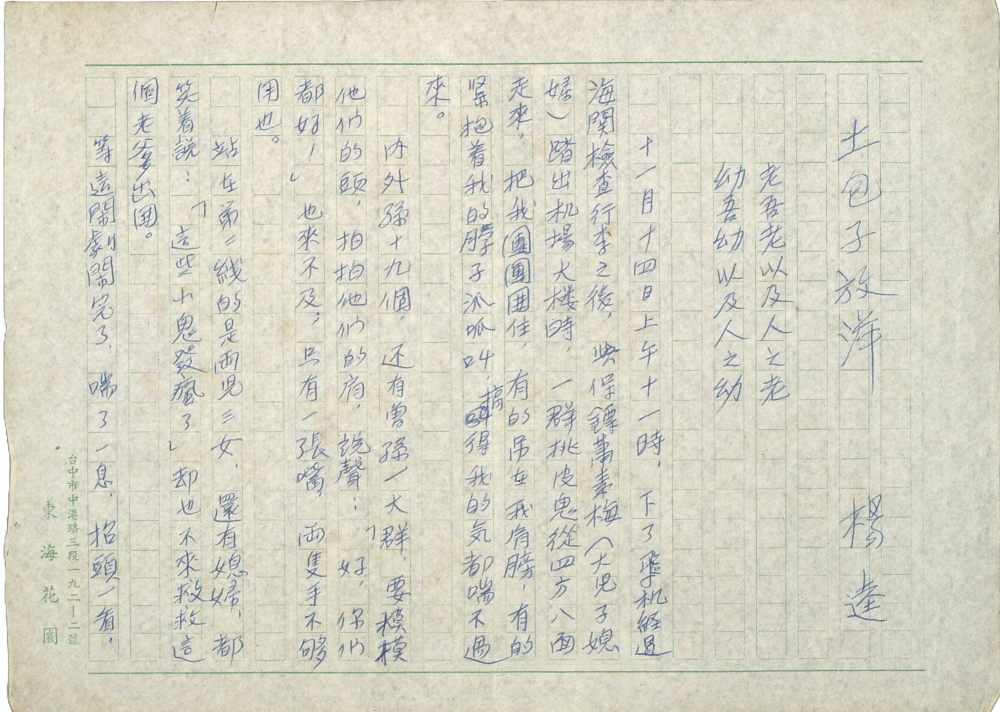
◪ Manuscript of "Country Bumpkin Grazes Overseas" by Yang Kuei, 1982
77-year-old Yang Kuei made his first trip to the United States at the invitation of the International Writing Program (IWP). He was accompanied and cared for by his eldest daughter-in-law, Hsiao Su-mei. (Courtesy of the National Museum of Taiwan Literature Collections)
New Criticism
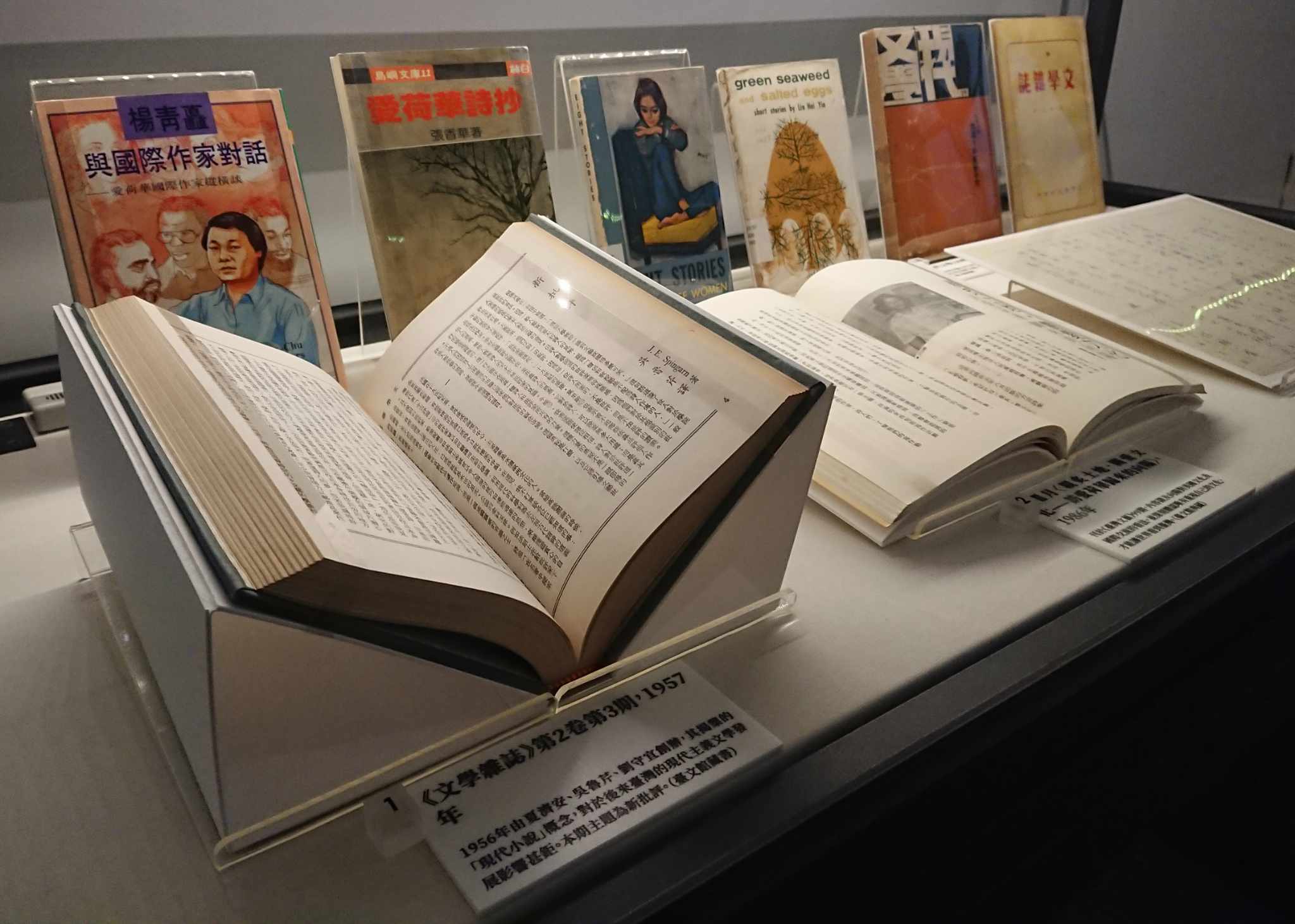
The training I received at the University of Iowa naturally had a significant impact on my later works of fiction and critical articles, namely, developing a special appreciation for fiction's artistic forms.
——Ouyang Tzu
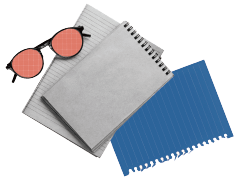 The Iowa Writers' Workshop advocated the analysis of student works through the lens of New Criticism (or close reading). This style of criticism went on to influence the creation, commentary, and teachings of later Taiwanese and Hong Kong writers. The simple classrooms of the Iowa Writers' Workshop built along the Iowa River were the setting for passionate discussions of student works (with the names of the authors being withheld temporarily) and fiery debates.
The Iowa Writers' Workshop advocated the analysis of student works through the lens of New Criticism (or close reading). This style of criticism went on to influence the creation, commentary, and teachings of later Taiwanese and Hong Kong writers. The simple classrooms of the Iowa Writers' Workshop built along the Iowa River were the setting for passionate discussions of student works (with the names of the authors being withheld temporarily) and fiery debates.
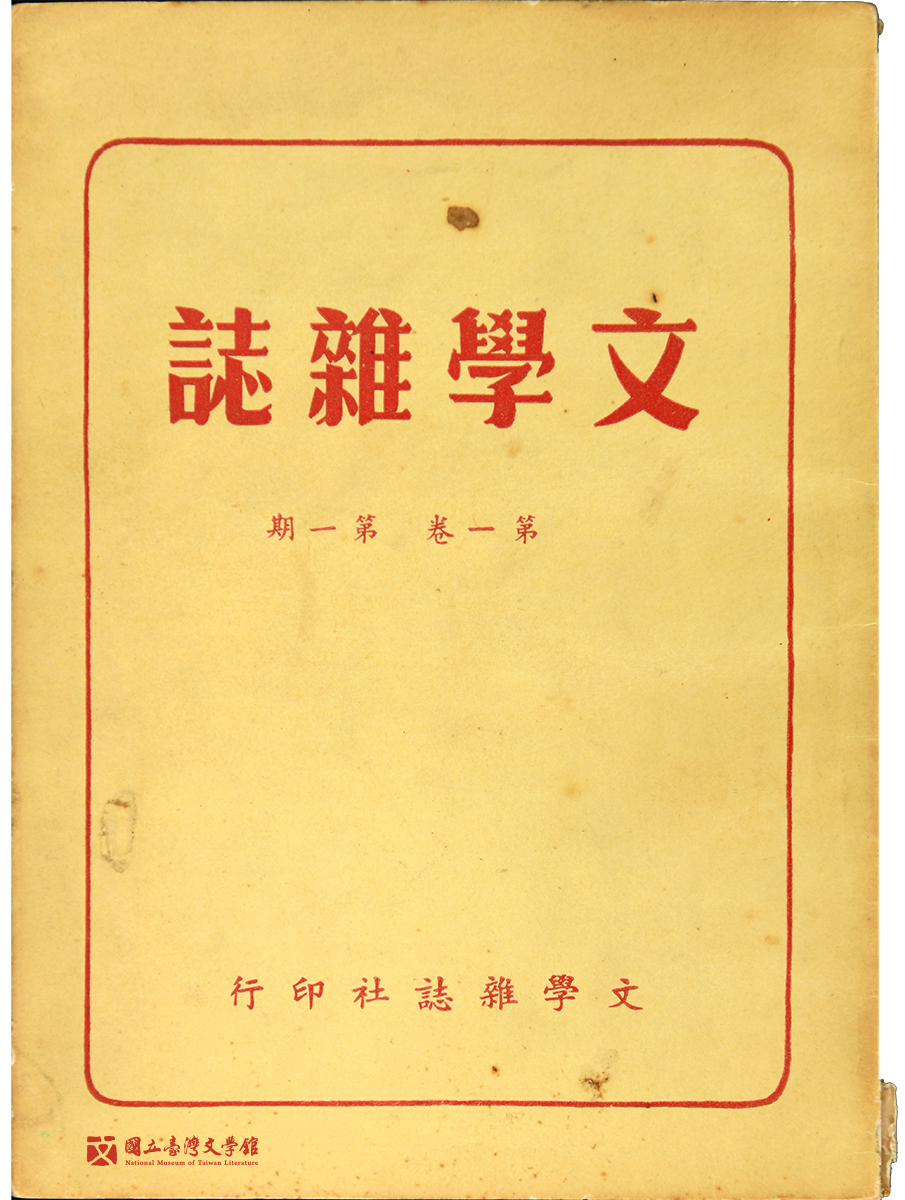
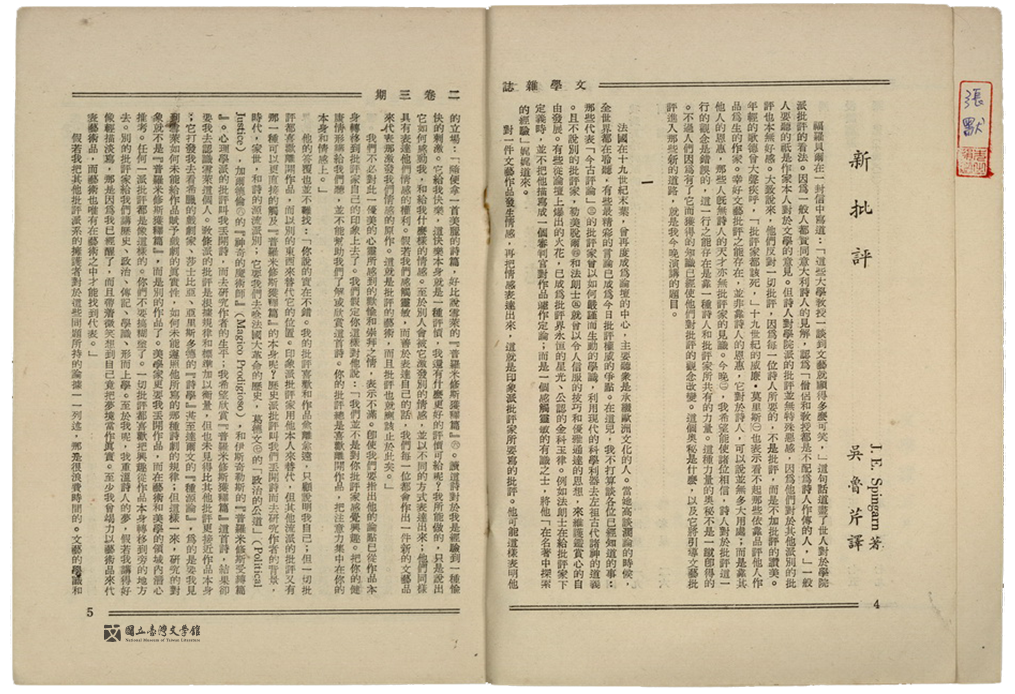
◪ Literary Review, Vol. 2, Issue 3
Literary Review was launched in 1956 by T. A. Hsia, Lucian Wu, and Liu Shou-yi. The concept of the "modern novel" it proposed greatly influenced the development of modernist literature in Taiwan. This issue, published in 1957, centers on New Criticism. (Courtesy of the National Museum of Taiwan Literature Collections.)
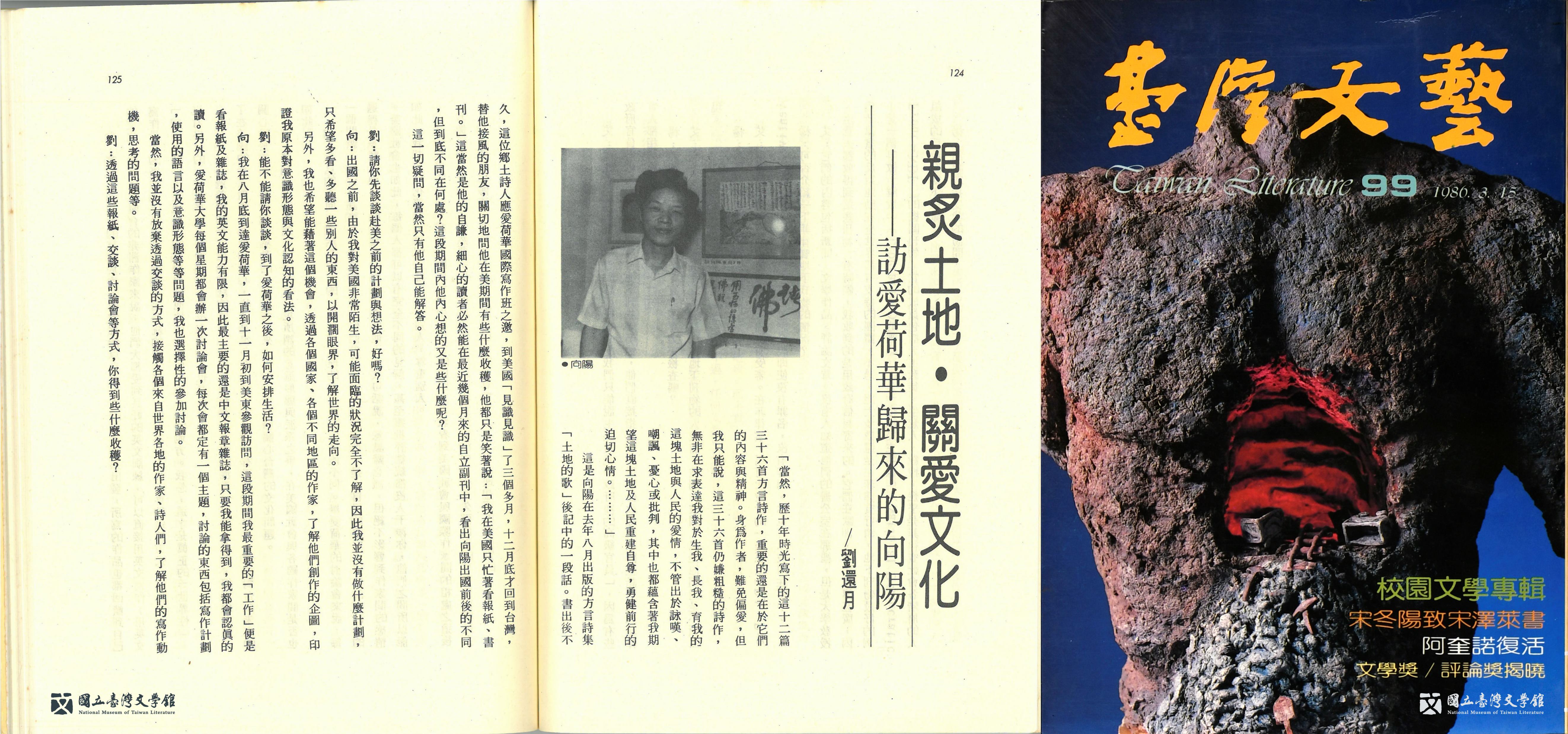
◪ "Land of Enlightenment - A Culture of Care: On Hsiang Yang's Return from Iowa by Liu Huan-Yueh, 1986
Published in the 99th issue of Taiwan Literature, the article discusses Hsiang Yang's views on American culture and international exchange, as well as how he deeply realized that only by valuing his own culture could the world learn of Taiwan. (Courtesy of the National Museum of Taiwan Literature Collections)
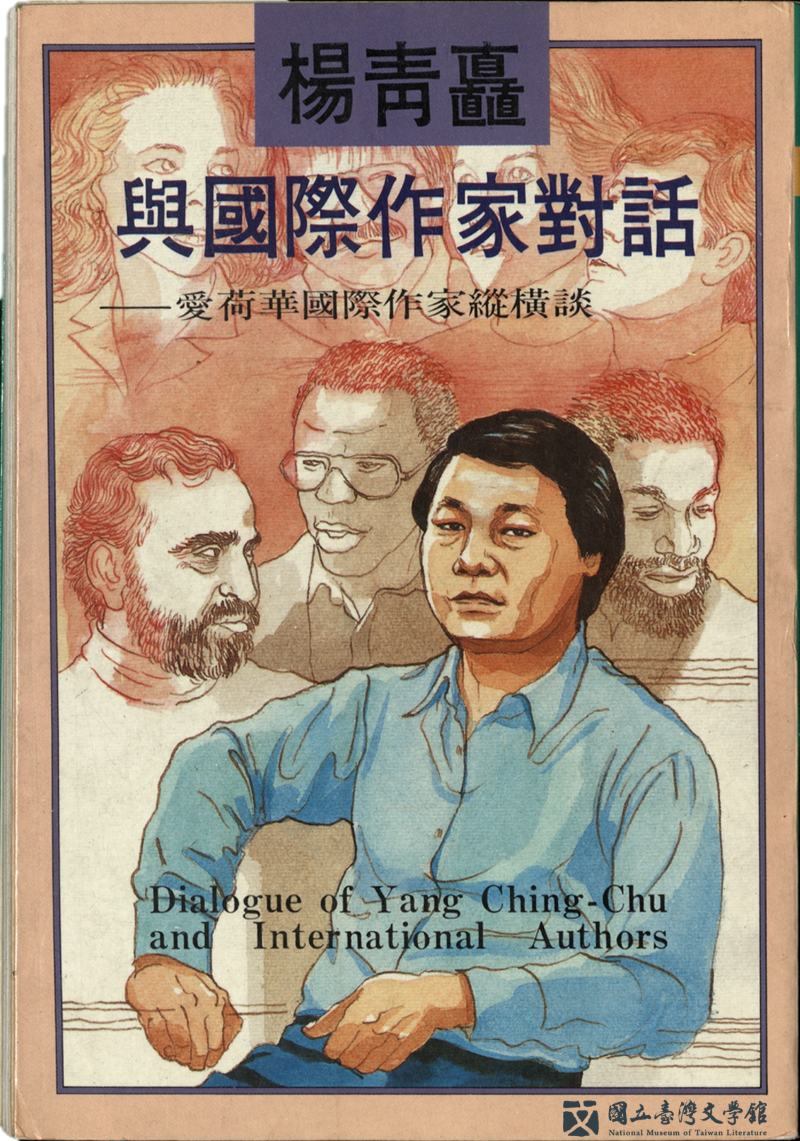
◪ Dialogue of Yang Ching-Chu and International Authors by Yang Ching-Chu, 1986
Published by Dunli Publishing House. (Courtesy of the National Museum of Taiwan Literature Collections)
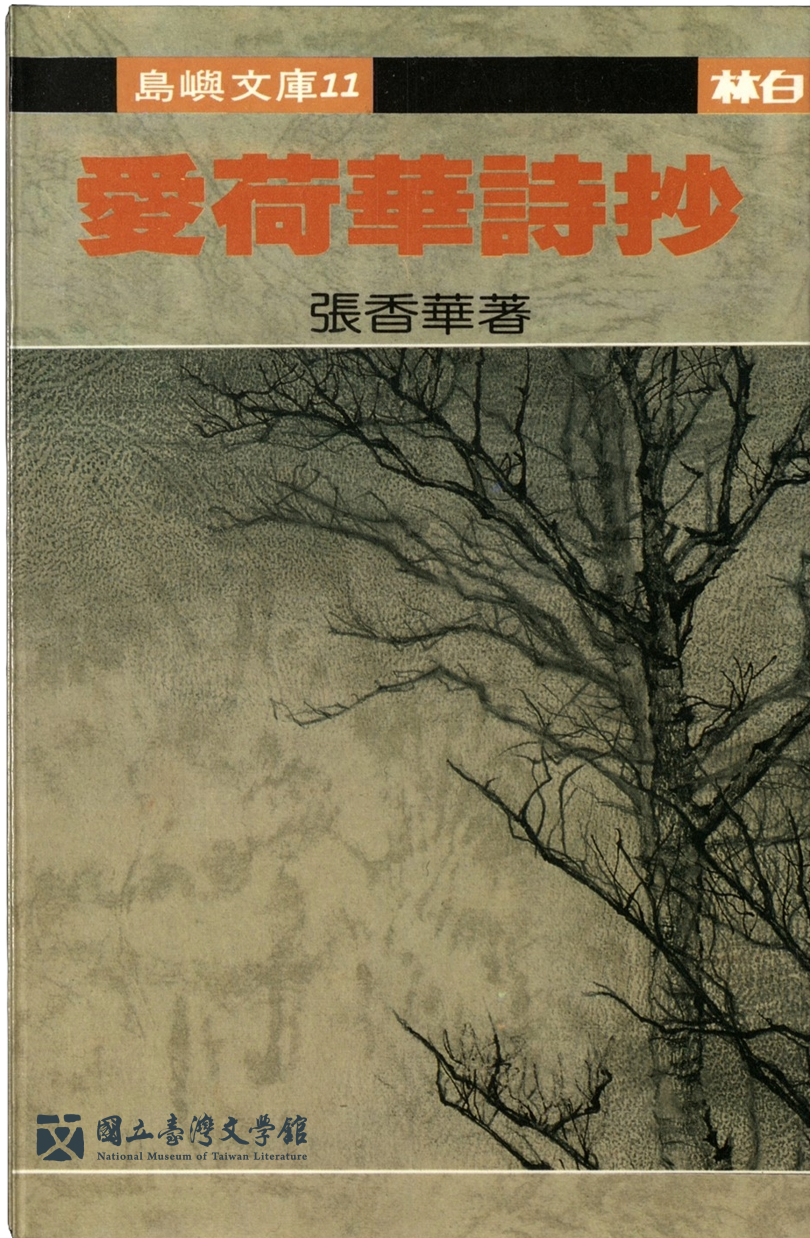
◪ A Selection of Poems from Iowa by Chang Hsiang-Hua, 1985
Chang Hsiang-hua traveled to the United States with Bo Yang to attend the International Writing Program (IWP) in 1984 and published this book in 1985. Poet Chang Mo commented how this work "took inspiration from life" and "unearthed new experiences" as well as being able to take on many forms in "life, experience, and sincerity". (Courtesy of the National Museum of Taiwan Literature Collections)
Taiwanese Writers Who Attended the Iowa Writers' Workshop
1958: Yu Kwang-chung (Sponsored by the Asia Society, Yu Kwang-chung was the first writer from Taiwan to travel to the U.S. and study at the University of Iowa.)
1963: Pai Hsien-yung, Wang Wen-hsing, Ouyang Tzu(Hung Tse-hwei), Wai-lim Yip
1964: Nieh Hua-ling, Yang Mu/Yeh Shan(Wang Ching-hsien)
1967: Ya Hsien(Wang Ching-lin)
1968: Chen Ying-chen, Cheng Chou-yu (Cheng Wen-tao)
1969: Shang Chin (Lo Yen)
1970: Lin Hwai-min
1971: Yao Yi-we (iYao Kung-wei)
1972: Wang Chen-ho Timothy
1973: Yu Tien-tsung
1974: Hu Mei-tze(Shiong-hong)
1976: Su-ma Sang-tun
1978: Tung Nien, Chin Sung
1979: Kao Chun
1980: Wu Sheng
1981: Sung Tse-lai (Liao Wei-chun), Chiang Hsun
1982: Yang Kuei, Yuan Chiung-chiung, Kuan Kuan(Kun Yun Lung)
1983: Chen Ying-chen, Liu Wu-hsiung (Chi teng Sheng)
1984: Bo Yang, Chang Hsiang-hua, Kao Hsin-chiang
1985: Yang Ching-chu, Hsiang Yang
1986: Wang Tuoh
1987: Li Ang(Shih Shu-tuan), Huang Fan, Chiang Hsun
1988: Chi Chi(Lee Juey-yeh), Hsiao Sa (Hsaio ching-yu)
1992: Wang J. C. Katherine, Wang Lomen
1997: Chang Ta-chun
2007: Lo Yi-chin
2010: Ying Feng-Huang
2011: Su Wei-chen
2012: Lin Chun-ying
2013: Tong Wei-ger
2014: Chen Li
2015: Chung Wen-yin
2016: Chen Ko-hua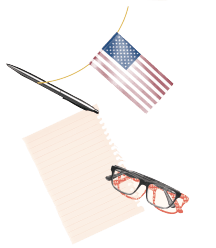
2017: Yan Chung-hsien
2018: Huang Chong-kai
2019: Walis Nokan
2022: Chu He-chih
2023: Kevin Chen, Kotomi Li

